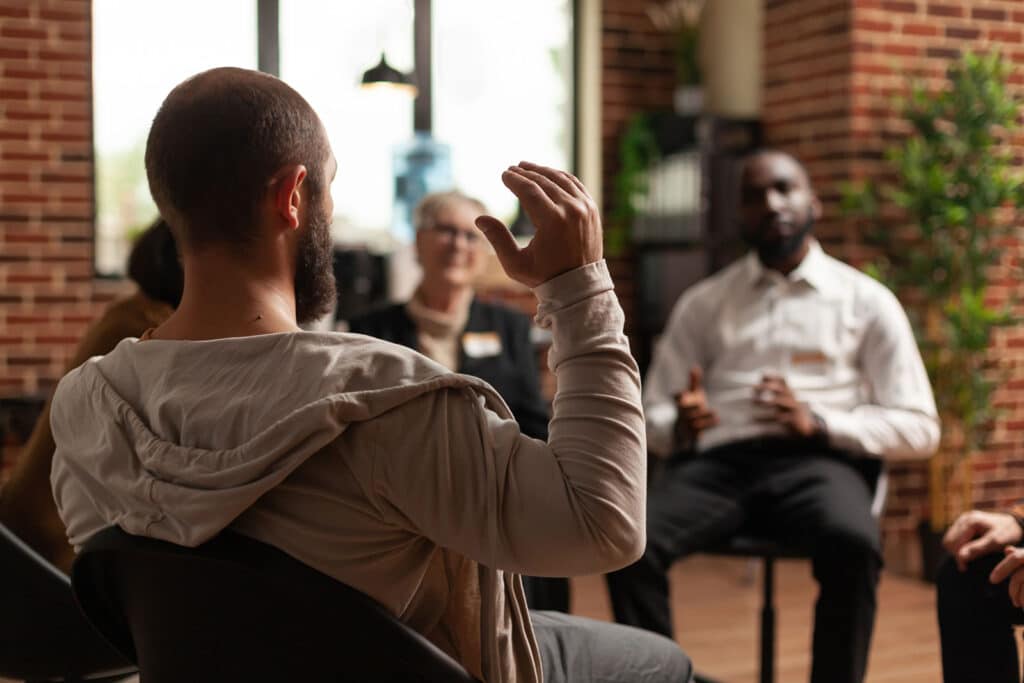Addiction is a serious issue that affects thousands of families across the country. It can impact every area of a person’s life, causing them to lose their jobs, money, and relationships with loved ones.
For those struggling with substance abuse, getting back on their feet can seem like a tough challenge. It takes courage and determination to make the first step towards recovery. That’s why seeking professional help is crucial.
For Florida residents, an addiction treatment center in Boca Raton can provide the support needed to begin that journey. Known for its experienced professionals, peaceful environment, and varying treatment programs, Boca Raton is definitely a trusted place for recovery.
In this article, we’ll go through the treatment plans these centers offer and how to find the right one for your situation.

Addiction in Boca Raton: Local Statistics
Like many communities in Florida, Boca Raton has felt the impact of the ongoing addiction crisis. It’s an area known for having nice weather and quiet neighborhoods. However, hundreds of its residents still struggle with issues associated with drug and alcohol abuse.
Recent data from Palm Beach County (where Boca Raton is located) shows an overall drop in the number of deaths related to drug abuse. Compared to the year prior, the area witnessed a 46% decrease in fatalities. However, over 200 people still died from opioid overdoses in 2024.
This shows that the problem is far from being solved, and more serious actions must be taken.
Fentanyl Abuse
Fentanyl is a synthetic opioid that’s much more powerful than morphine, commonly used in medical settings to treat severe pain. Yet, on the streets, it comes in forms where it’s mixed with other drugs like heroin, cocaine, or fake pills.
It’s an extremely dangerous substance and contributes to the majority of fatalities in the area. The smallest amount of fentanyl can cause an overdose in a matter of minutes. The sad part is that many people who overdose don’t even realize they’ve taken it.
As such, local health officials and treatment centers in Boca Raton are working hard to raise awareness about fentanyl. They provide life-saving services like Narcan (naloxone), a medication that can reverse opioid overdoses if used quickly enough.
Alcohol and Other Substances
Other substances are also considered a huge concern in the state of Florida. Alcohol, for example, is one of the highly abused substances in the area. Moreover, misuse of prescription drugs, especially among teens and young adults, is growing.
Health officials are also tracking new dangers like xylazine. It’s a veterinary drug that sometimes gets mixed with other opioids, which makes overdoses even more dangerous.

Types of Treatment Programs Offered in Boca Raton
Addiction treatment centers in Boca Raton offer a range of programs to meet the different needs of individuals at various stages of recovery. Some people may need full-time care, while others might benefit from part-time support as they return to their daily lives.
Check out the types of addiction treatment programs offered at specialized facilities:
1. Medical Detox
Medical detox is usually one of the initial stages of treating addiction. It helps individuals remove drugs or alcohol from their systems safely under the care of healthcare professionals. Depending on the substance, detox mostly lasts from a few days to one week.
Because withdrawal symptoms can be uncomfortable or life-threatening at times, a patient has to be monitored. Detox provides supervision, medication if needed, and support to make the process as manageable as possible.
2. Intensive Outpatient Programs (IOPs)
IOPs make a great solution for those who need a comprehensive treatment plan but don’t require continual supervision. Such programs mostly consist of therapy sessions several times weekly.
The treatment plan in an IOP addresses the mental health issues related to substance abuse. This includes individual counseling, group therapy, and relapse prevention tactics.
On the whole, IOPs are ideal for those whose cases are stable enough for them to live at home during the recovery process.
3. Kosher Addiction Treatment
Kosher addiction treatment supports individuals of the Jewish community by respecting their religious practices through their recovery process. This makes the healing process more supportive and meaningful.
Principally, these programs offer kosher meals, observe Shabbat and holidays, and may include access to rabbis or spiritual counseling. This creates a comfortable environment for the patients as they don’t have to choose between recovery and religious beliefs.
4. Outpatient Rehab
Outpatient treatment offers the most flexibility among all options. It’s a suitable choice for those with mild addictions or people who have already completed a more intensive program. Usually, this type involves weekly counseling or group therapy sessions.
During the outpatient rehab program, patients attend scheduled sessions about once or twice per week. They do so while continuing with work, study, or other family responsibilities. So, it allows patients to receive the care they need without too much disruption to their daily lives.
5. Partial Hospitalization Programs (PHPs)
PHPs provide the high level of care inpatient treatment programs do without requiring the person to live at the facility. This type includes medical supervision, therapy, and sometimes medication management.
A PHP provides a lower level of care than the inpatient type. It’s an alternative for those who need a bit more than outpatient services. In other words, it’s like a middle ground that helps ease patients’ way back to their daily lives.
6. Inpatient/Residential Addiction Treatment Programs
This type of program requires living at the treatment center full-time. It offers 24/7 care with a structured daily routine that includes therapy, group activities, education, and medical support.
In general, inpatient treatment is helpful for cases of severe addiction or dual diagnosis (addiction and mental health issues). It’s also the best choice for those who don’t have a strong support system at home and need to be removed from triggering environments.

Evidence-Based Therapies and Approaches
Addiction recovery isn’t just about stopping drug use or excessive drinking. To fully recover, patients need to change their behavior, build healthy habits, and address their underlying mental health issues.
Treatment centers in Boca Raton and all around Florida use different types of evidence-based therapies. These approaches have shown fantastic results in helping people recover and stay sober.
Take a look at some of the most effective approaches commonly used in addiction treatment programs:
1. Cognitive Behavioral Therapy (CBT)
Therapists use CBT to help patients understand how their thoughts can affect their behavior. Through this approach, people struggling with addiction learn how to replace negative thinking patterns with healthier ones.
CBT also teaches them skills like managing stress, avoiding triggers, and staying focused on recovery goals. Such a type of therapy works greatly, especially for those who suffer from anxiety, depression, or other mental challenges besides addiction.
2. Dialectical Behavior Therapy (DBT)
DBT focuses on teaching emotional control, mindfulness, and healthy ways to handle conflict. Through it, patients learn how to accept their emotions while working on changing harmful behaviors.
Principally, DBT is extra beneficial for those with dual diagnosis who have a history of self-destructive behaviors.
3. Group Therapy
In group therapy, patients meet regularly with others who are going through similar difficulties. A professionally trained therapist guides these sessions and encourages open discussions between participants.
This type of approach helps build connections, reduce feelings of isolation, and create a strong supporting system. By hearing others’ experiences, recovering individuals know they’re not alone and develop their coping skills.
4. Individual Counseling
One-on-one sessions with a licensed therapist give patients a more private setting to talk openly. They become able to address their trauma, set goals, and uncover the reasons behind their addiction.
These sessions allow space for deeper emotional healing, helping patients build confidence and develop tools for long-term recovery.
5. Medication-Assisted Treatment (MAT)
According to each person’s assessment, treatment centers use MAT alongside therapy to support recovery. Primarily, it makes the early stages of becoming clean more achievable.
MAT utilizes FDA-approved drugs alongside therapeutic support to address substance use disorders. Medications like Suboxone or Vivitrol help the recovery process by reducing cravings and preventing the risk of relapse.
6. Family Therapy
Those who are lucky enough to have the support of loved ones benefit greatly from family therapy during the recovery process. This type of approach helps family members understand addiction as a disease, not a moral failure.
Moreover, it shows them how to be supportive of the patient in a healthy manner. When strong family relationships interfere, the outcome of treatment leads to more comfortable and longer-term recovery.
7. Holistic Therapy
This approach aims to treat the whole person, not just the addiction part. Activities like yoga, meditation, art therapy, and nutrition classes aid the recovery process more than someone might think.
These therapies help reduce stress, improve mental clarity, and promote physical wellness.

Final Thoughts
Taking the first step towards recovery is the most important decision in someone’s life. For those living in Florida, an addiction treatment center in Boca Raton can provide the structure, therapy, and medical care needed along the way.
With personalized treatment plans and help from professionals, these centers can transform the lives of individuals suffering from addiction. They offer a way to break free from the jail of drugs and build a healthier, more promising future.
At Recreate Behavioral Health Network, we help connect people with the care they need to take control of their lives again. So, if you or a loved one is suffering from addiction, please don’t hesitate to contact us.








